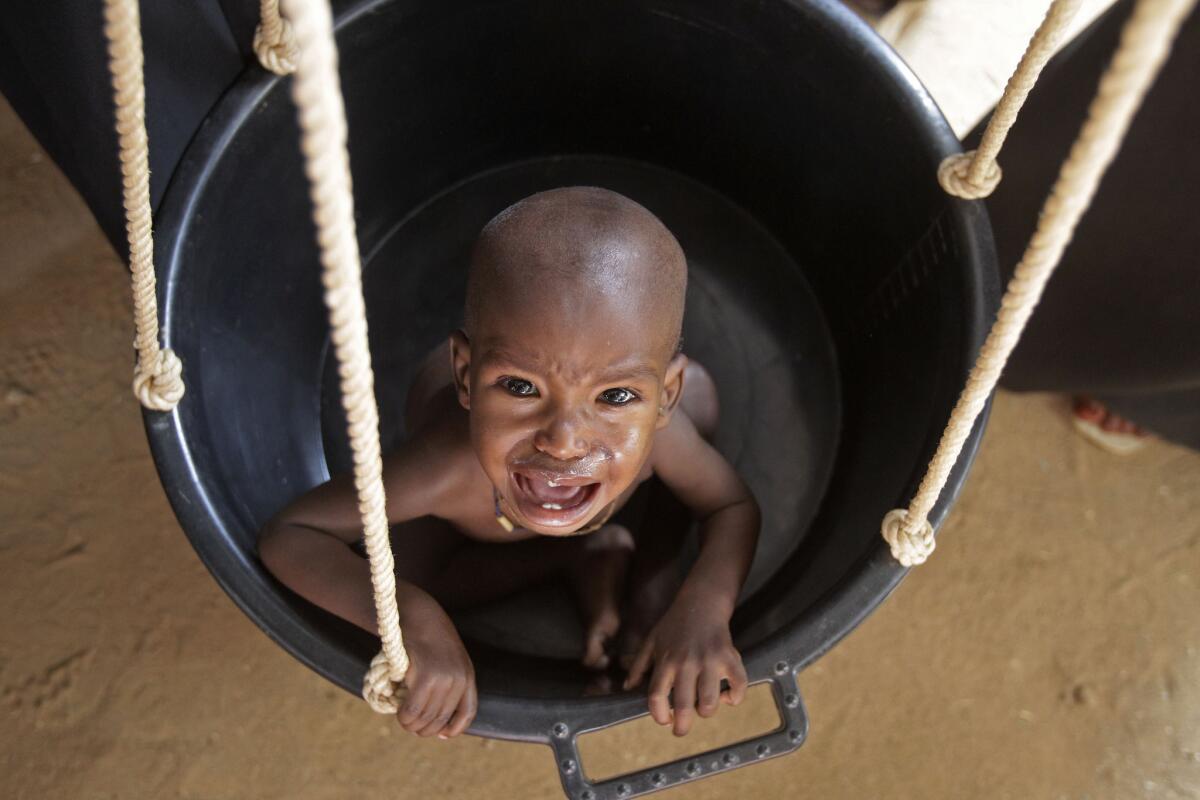Report: Nearly 260,000 died in Somalia food crisis

JOHANNESBURG, South Africa -- It was the catastrophe everyone knew was coming, yet no-one seemed able to stop.
Nearly 260,000 people died in Somalia’s food crisis from 2010 to 2012, double the worst estimates at the time, according to a report released Thursday by the U.S.-funded Famine Early Warning System (FEWS NET) and the U.N. Food and Agriculture Organization. Half of them were children under 5.
FEWS NET began issuing warnings about the impending disaster in southern Somalia from 2010. A famine was declared in July 2011.
Nearly 5% of the region’s population and 10% of its children died, the report said. The shocking findings were the result of the first definitive scientific study of the impact of the famine.
According to analysts, it was largely a man-made disaster. The Al Shabab militia denied humanitarian access to the hardest-hit areas and prevented starving people from leaving, the report said. Aid was diverted by local clan warlords and officials with the transitional government in Mogadishu.
U.S. counterterrorism policy also played a role, according to analysts. Some humanitarian agencies halted aid deliveries to Al Shabab-controlled areas after the United States designated the group a terrorist organization in 2008. Under U.S. law, anyone providing aid to a terrorist organization may be prosecuted.
In January 2010, the World Food Program suspended aid to southern Somalia, following reports Al Shabab was diverting it.
Ken Menkhaus, a Somalia expert at Davidson College in North Carolina, said WFP’s decision and the U.S. anti-terror laws had a “chilling effect” on other humanitarian organizations that were trying to respond to the crisis in Somalia.
“Everyone wanted to get aid in. But local aid diversion was endemic,” he said in a telephone interview. “One aid agency worker called southern Somalia ‘an accountability free zone.’ You could not count on getting aid to the people who needed it most.”
Geno Teofilo, a spokesman for Oxfam, said the humanitarian agency believes the international community puts too much emphasis on security issues in the developing world and not enough on humanitarian crises.
“Oxfam believes that when there’s a conflict, it doesn’t matter what side of the control line people are on,” Teofilo said in a telephone interview. “When they need food and people are dying of hunger, politics should not play a part. People should be able to receive humanitarian aid, wherever they are.”
ALSO:
Former Pope Benedict XVI moves back into Vatican
U.N.: April was deadliest month in Iraq in nearly 5 years
American sentenced to 15 years hard labor in North Korea
More to Read
Sign up for Essential California
The most important California stories and recommendations in your inbox every morning.
You may occasionally receive promotional content from the Los Angeles Times.










